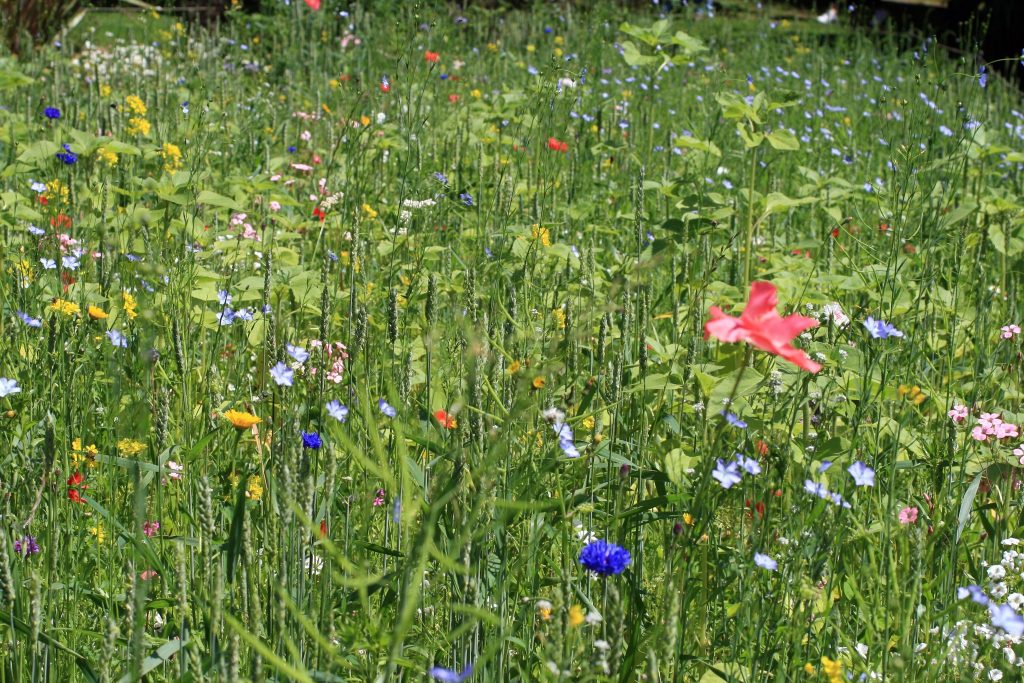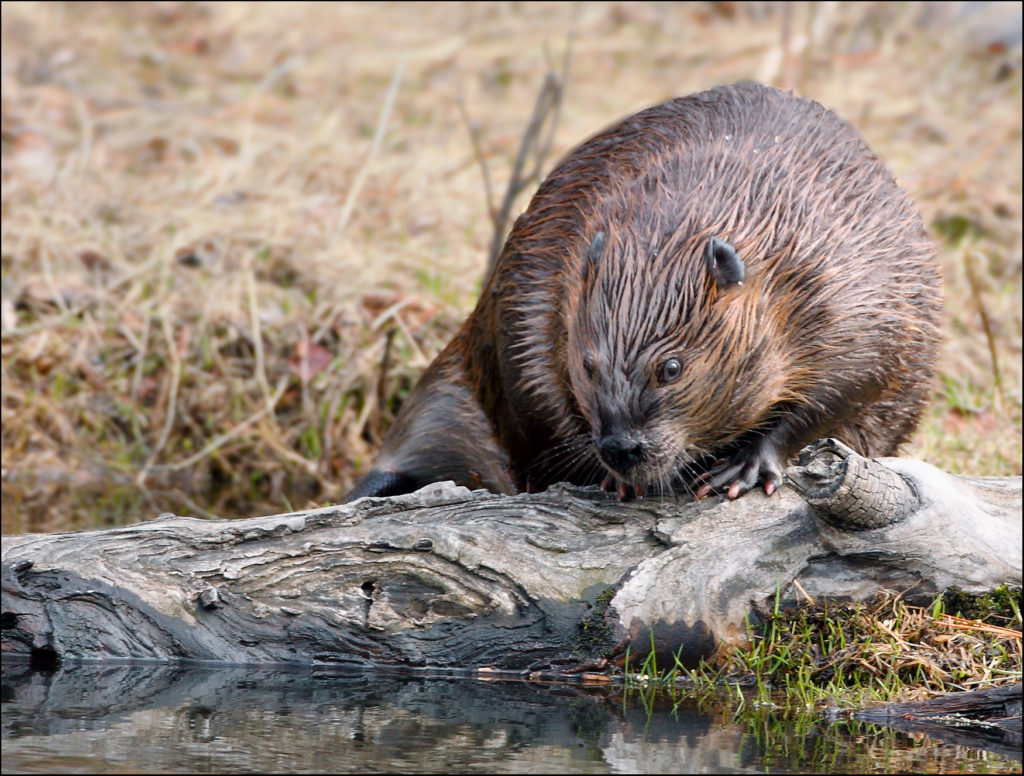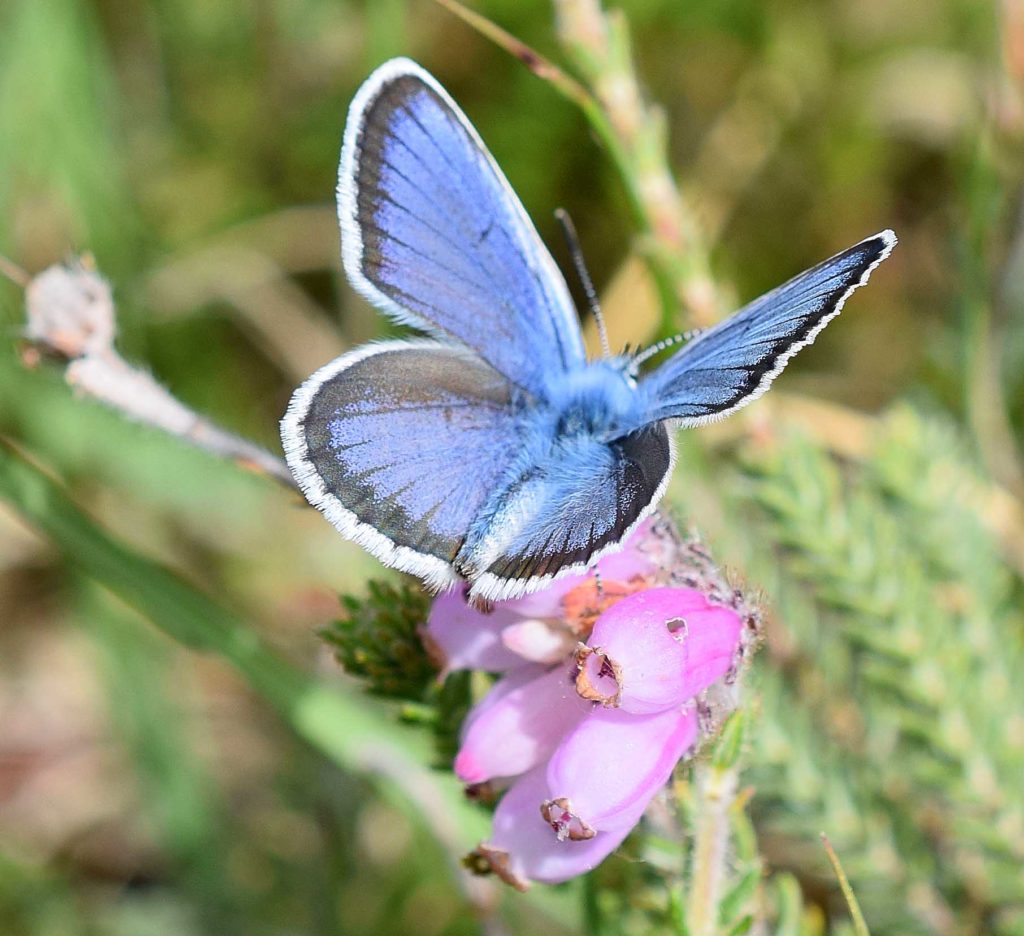A summary the Normandy Parish wildlife records that members had given me, together with those I and fellow FNW Committee member, Steve Marshall, had collected are given.
Close to 280 species of moth (macro and micros) had been recorded in 2023. Several new species to Normandy Parish are illustrated on our poster boards. Of particular interest is a Dark Spinach (Pelurga comitata) which was helped out (alive) of a water filled rut on Folly Hatch! It’s status is Vulnerable in Great Britain because of the decline of it’s foodplant (oraches and goosefoots), presumably due to modern agricultural practices.
Over 550 butterfly records (a record number!) were submitted to the Surrey branch of Butterfly Conservation and included 30 different species. I was lucky enough to photograph a Grayling (Hipparchia Semele) on our door frame! This is the first time I’ve been able to photograph this butterfly on our property; it being more often seen on the heathland. Its status in the UK is Vulnerable.
Amphibian and reptile records were entered as usual into Surrey Amphibian and Reptile Group’s website. Sadly they included one dead Smooth Snake (Coronella austriaca, our rarest snake), which was found on a scrape near the edge of a recently burnt area on Ash Ranges. Perhaps it had strayed onto the burnt area where it was more visible and killed by a corvid. Close to 100 of our amphibian records have recently been shared with our Parish Council in an attempt to try to understand the distribution and apparent decline of the Common Frog and Toad (Rana temporaria & Bufo bufo), particularly on Normandy Common.
I have still to submit bird, mammal, plant, fungi and other insect records. Steve is ahead of me on this front and should be commended for his efforts and on helping to put Normandy on the map. Amongst others he submitted 34 bird records, 17 plant records, numerous other insect records and 4 mammal records.
As in previous years I encourage members to put Normandy on the map by continuing to send records to FNW or to one of the many recording centres/devices. If sent to the latter please do try to let us know as well! Many thanks to those members who submitted sightings in 2023.
Bill Stanworth, FNW Species Records Coordinator



